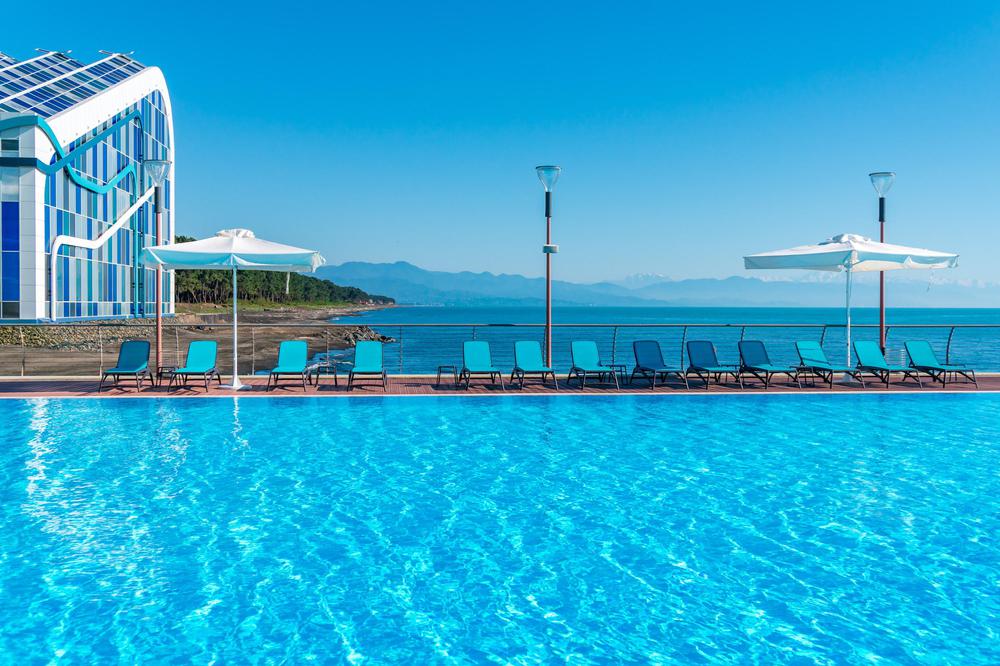Nestled in the vibrant heart of Tbilisi, the capital of Georgia, lies Abanotubani, a historic district famed for its therapeutic sulfur baths. The story of Abanotubani is not just about the restorative properties of its waters but is intertwined with the very foundation and evolution of Tbilisi itself. The area is known for its narrow, winding streets and distinctive architectural style, featuring brick-domed bathhouses that have been a central part of Georgian bathing culture since the 5th century.
Historical Background
The origins of Abanotubani and Tbilisi are steeped in legend. It is said that King Vakhtang Gorgasali, while hunting in the 5th century, discovered a hot spring after his falcon fell into it. This discovery led him to establish a city around these thermal waters, which he believed had healing properties. The name "Tbilisi" itself derives from the old Georgian word "Tpili," meaning warm, indicating the presence of warm springs. Over the centuries, the city became a significant stop on the Old Silk Road, enhancing the prominence of its bathhouses. At its zenith in the 13th century, Tbilisi boasted over 60 bathhouses, though today only a handful remain.
The Bathing Experience
A visit to Abanotubani is a journey through time, offering a glimpse into an ancient tradition that continues to thrive. The sulfur baths, with water temperatures ranging between 38-45°C (100-113°F), are believed to have numerous health benefits, including alleviating skin conditions and reducing joint pain. The process typically involves a check-in, a shower, and then a relaxing soak, with options for additional treatments like massages or scrubs. These bathhouses are bastions of tranquility, adhering to a respectful and serene atmosphere.
Architectural and Cultural Significance
The architecture of Abanotubani is as varied as its history. From the visually striking Persian-inspired Orbeliani Baths to the more traditional and modest establishments, each bathhouse offers a unique window into Georgian culture. This area is also a cultural mosaic, home to important landmarks like the Jumah Mosque and the Metekhi Church. The eclectic mix of religious and historic buildings in close proximity illustrates the diverse cultural influences that have shaped Tbilisi over the centuries.
The Evolution of Abanotubani
While steeped in history, Abanotubani has not remained static. The bathhouses have evolved to meet contemporary needs, balancing modern amenities with traditional practices. This includes offering a range of experiences from communal baths to private luxury rooms. Such adaptations showcase Georgia's commitment to preserving its cultural heritage while embracing modernity.
Impact on Local and Global Visitors
Abanotubani continues to be a significant tourist attraction, drawing visitors from around the world to experience its unique blend of history, architecture, and wellness. The district serves as a living museum, offering insights into the past while providing a space for relaxation and healing. Its enduring popularity underscores the universal appeal of traditional wellness practices and the importance of preserving cultural heritage in an ever-changing world.
Diversity of Bathhouses in Abanotubani
Abanotubani's allure partly lies in the diversity of its bathhouses, each offering a unique experience. Some of the prominent bathhouses include:
Orbeliani Baths (Chreli Abano):
This iconic blue-tiled bathhouse is known for its stunning Persian-inspired architecture. It offers a range of services, including private baths and various spa treatments.
Gulo's Thermal Spa:
Favored for its friendly atmosphere and affordability, this spa provides an authentic Georgian bath experience, reflecting the traditional aspects of the local bathing culture.
Royal Bath:
Another notable establishment in Abanotubani, the Royal Bath is known for its historic significance and traditional Georgian architecture. It offers a range of bathing options and treatments, maintaining a balance between historical authenticity and modern comfort.
Cultural Practices and Traditions
Visiting a bathhouse in Abanotubani isn't just about physical wellness; it's a cultural ritual deeply embedded in Georgian society. The baths serve as communal spaces where socializing and relaxation are equally important. Traditional practices like the kisi scrub, a vigorous exfoliation process, are integral to the bathing experience. These practices are not just for personal care but are also seen as a way to cleanse and rejuvenate the spirit.
Impact on Tourism and Cultural Identity
Abanotubani plays a crucial role in Tbilisi's tourism, drawing visitors with its unique blend of history, architecture, and wellness. The district has become a symbol of Tbilisi's cultural identity, showcasing the city's ability to preserve tradition while adapting to modern needs. The baths are a point of pride for locals and a must-visit for tourists, serving as a gateway to understanding Georgian culture and history.
Preservation and Future Challenges
As Abanotubani continues to attract global attention, the challenge of preserving its historical integrity while accommodating modern developments becomes crucial. Efforts to maintain the bathhouses, many of which are architectural landmarks, require careful balance to ensure that the area's historical significance is not lost amidst tourism and urban development.
Conclusion
Abanotubani is more than a cluster of historic bathhouses; it's a living monument to Georgian culture, history, and traditional wellness practices. It stands as a testament to the enduring appeal of communal bathing and its significance in Georgian society. As a hub of cultural exchange and relaxation, Abanotubani not only offers a unique spa experience but also serves as a mirror reflecting the rich tapestry of Georgia's past and present.



 Tbilisi
Tbilisi
 Jumah Mosque
Jumah Mosque
 Metekhi Church
Metekhi Church
 The Healing Powers of Nature
The Healing Powers of Nature
 Relax and Rejuvenate
Relax and Rejuvenate
 Tbilisi's Sulphur Baths
Tbilisi's Sulphur Baths
 Sulfur Baths of Borjomi
Sulfur Baths of Borjomi
 Balneological Resort of Sairme
Balneological Resort of Sairme




